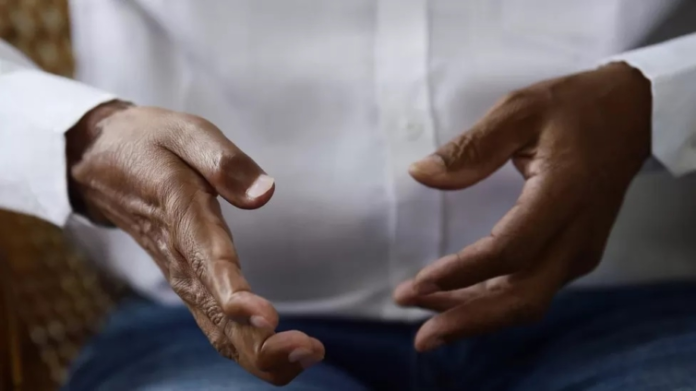In 2010, the hand of a professor in India was cut off by extremists after he was accused of insulting Islam in an exam paper.
Last month, the government banned the controversial Muslim group Popular Front of India (PFI), whose members had carried out the attack.
The BBC travelled to Kerala to piece together the grisly incident and its aftermath.
Warning: This article contains details some readers may find distressing.
TJ Joseph remembers the attack from 12 years ago vividly.
It was a rainy July morning. Prof Joseph, then a 52-year-old teacher of Malayalam language at a local college, was driving home with his mother and sister after Sunday Mass in Muvattupuzha, an idyllic town in the southern state of Kerala set on the banks of a river by the same name.
Barely 100m from his house in a leafy, undulating lane, a Suzuki minivan barrelled down, took a sharp turn and blocked his hatchback.
The door of the minivan opened, and six men burst out. One of them ran up to Prof Joseph’s car. He was carrying an axe.
As the man approached the driver’s door and tried to yank it open, another man, brandishing a dagger, brought up the rear. Three others reached the passenger’s side where his sister was sitting.
Cowering at the wheel of his four-year-old Wagon R, his engine switched off and the driver’s side window smashed into pieces by a blow of the axe, Prof Joseph realised he was trapped.
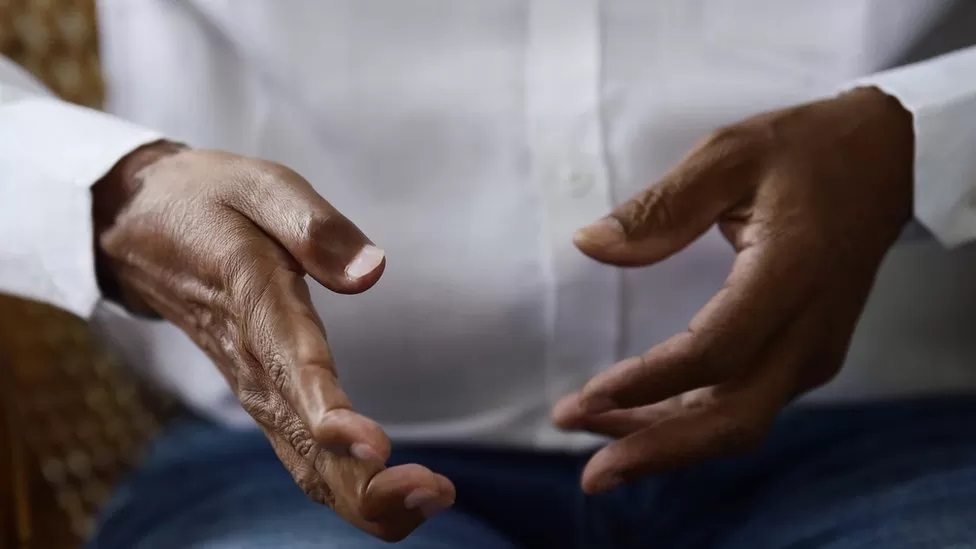
The axe-wielding man opened the door from inside, pulled him out, dragged him along the rain-slicked road and hacked away at his legs and hands.
“Don’t kill me… please don’t kill me,” Prof Joseph pleaded with him.
The axe-wielding man kept stabbing and slashing, slicing his hand and legs like “chopping wood”.
The palm of his left hand had already severed and had been flung aside. The right arm was barely hanging from the rest of the body.
Prof Joseph’s son and wife had run out of their house after hearing screams and the terrible sounds of shattering glass. The son had raced to the scene and swung a machete at the man attacking his father.
The men detonated a crude bomb, left their bleeding victim on the road, and fled in the van.
“I thought, it’s all real and happening,” Prof Joseph recounted.
Neighbours picked up Prof Joseph and drove him to hospital. His severed hand was found lying “like a dried teak leaf” in a neighbour’s garden, put in a bag and rushed to the hospital separately.
Slipping in and out of consciousness, Prof Joseph was wheeled into emergency surgery at a hospital some 50km (31 miles) away. Six doctors took 16 hours and used 16 bottles of blood to operate on him and stitch back the severed hand and repair his wrist and arm.
Prof Joseph woke up 18 hours after the surgery. The hospital was swarming with news networks – the attack on a teacher had sparked public outrage. Doctors discharged him in August after 35 days, 11 of which were spent in critical care.
“My crime was setting a question in an exam paper which some people thought had insulted Islam. That upended my life,” Prof Joseph told me.
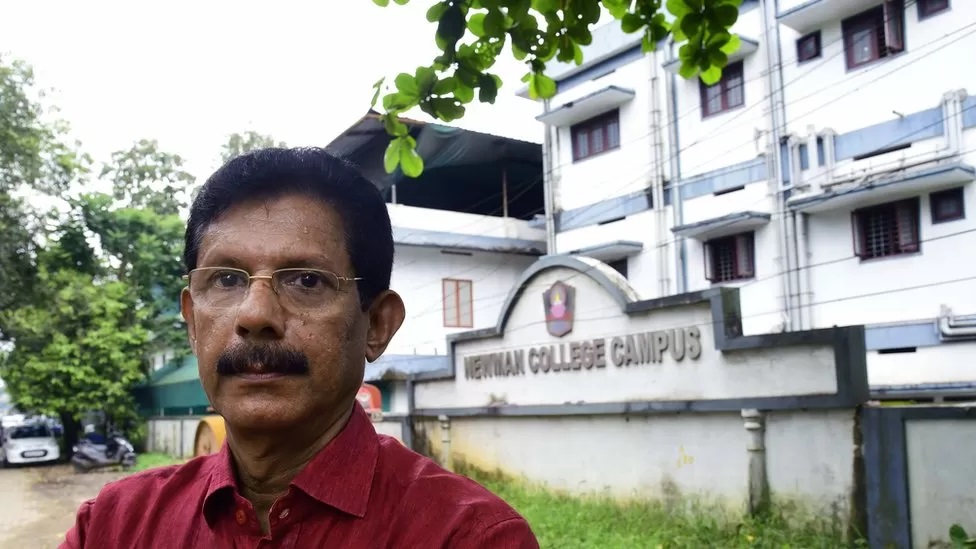
Barely four months before the attack, Prof Joseph had been woken up by a call early on 26 March. He had slept fitfully that night and felt a bit groggy.
On the line was the principal of Newman College, run by the local Roman Catholic church, and where he was in the second year of his third job in a 25-year-long teaching career.
As Prof Joseph recounts the story, the principal told him that the college ground was teeming with police, and it would be better if he stayed away.
“Things may blow up if you came,” the principal warned.
“Why? I haven’t done anything wrong,” Prof Joseph asked.
The principal told him that the “talk was the Prophet had been insulted and posters were being stuck on the college wall”.
The offending question was a punctuation exercise in which Prof Joseph had borrowed a dialogue – an imaginary conversation between “God and a mad man” – from a book on screenplays written by filmmaker PT Kunju Muhammed.
He renamed the “mad man” Muhammed, he says, after the second name of the director.
“Muhammed is a common name among Muslims. It didn’t cross my mind that anyone would misunderstand that as the Prophet Muhammad,” Prof Joseph said.
Thirty-two students, including four Muslims, had taken the test. None of them had objected to it; and only one female student had “displayed some hesitancy”.
With tensions rising, police were stopping protesters around the college gates. Mobs were forcing shops to close in the town. The college had quickly announced the teacher’s suspension.
“I felt like a person being stripped naked without a warning,” Prof Joseph said.
Prof Joseph asked his wife, Salomi, to pack a change of clothes, and took a bus out of town.
For the next few days, he travelled from one town to another, living in cheap hotels and watching the unfolding drama on TV. The police formed four teams to track him down and even took his 22-year-old son into custody to extract information about his father’s whereabouts.
Six days later, Prof Joseph surrendered to the police.
He was thrown into a prison cell with 15 others, including men accused of murders and selling illicit liquor. The police visited his home and took away his passport, bank documents and other official papers. Most importantly, they had accused him of “blasphemy and defying God”.
Prof Joseph’s college had issued a public apology, and the police called him a “question paper accused”. The college had sent him a list of charges, including “wounding sensibilities of followers of all religions, especially of Islam”.
After nearly a week in jail, Prof Joseph won bail and began living with his in-laws. He was careful about going out.
“I had a premonition that the fanatics would try to kill me,” he said.
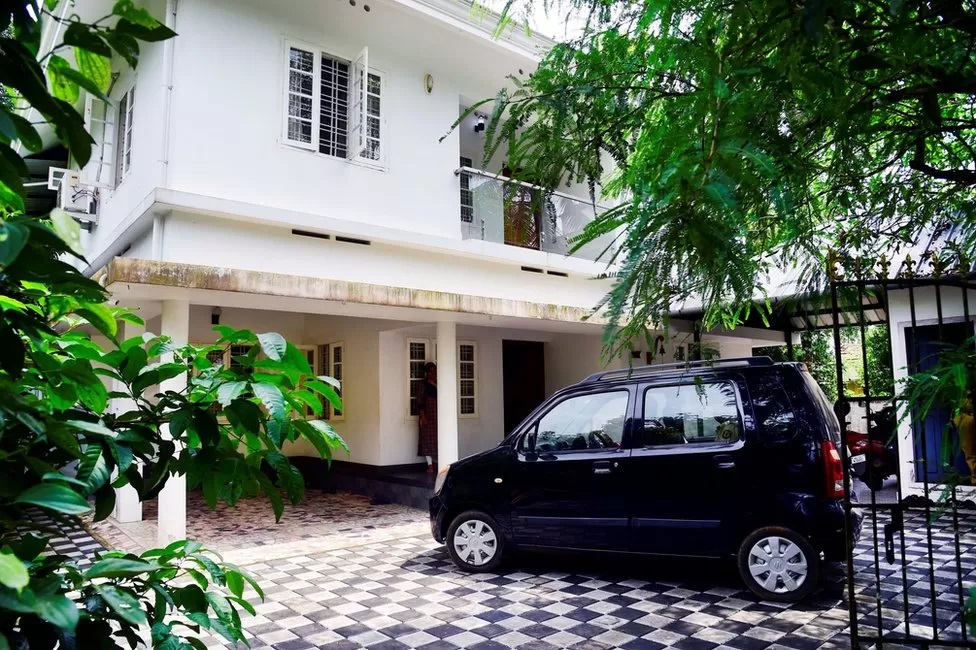
The men – different groups of them – came looking for Prof Joseph three times in May, and nearly managed to get him on one occasion.
He was not at home when six men claiming to be students arrived at the gate, and told family members that they wanted the teacher to write his memoirs for the college magazine.
The second time, they arrived at the door and told Prof Joseph they were seeking donations to treat the daughter of one of them who was suffering from kidney disease. They gave him an envelope which they said contained a letter of reference from someone he knew.
“I took two steps back from the gate, and returned to my house. The envelope had my name on it. I thought it might be a letter bomb, so I returned it and shut the door,” Prof Joseph recounted. The men walked out of the gate, and rode off on their bikes, “their faces impassive”.
“I was now certain they were coming to attack me. I called my neighbour. He asked me to shift out. I couldn’t leave my old mother and family. I began to panic.”
Prof Joseph called the police, who assured him of night patrols around his house, and left.
The men returned again, one afternoon in the last week of May.
Two of them rang the doorbell and said they were from a bank. One of them then barged in saying he was a policeman in plainclothes and darted from room to room looking for Prof Joseph, who was visiting his next-door neighbour.
The men circled the house and sped away on their bikes. It had been a providential escape for the teacher.
From then onwards, the Joseph home, at that time a low-slung three-bedroom house, was firmly secured – the doors were bolted, the gates locked, someone from inside constantly watched across the low wall overlooking the road outside.
Prof Joseph got a blacksmith to make him two machete-like choppers. He hid them behind the curtains in his living room. He rarely went out.
But his luck eventually ran out that fateful July morning when he was brutally attacked.
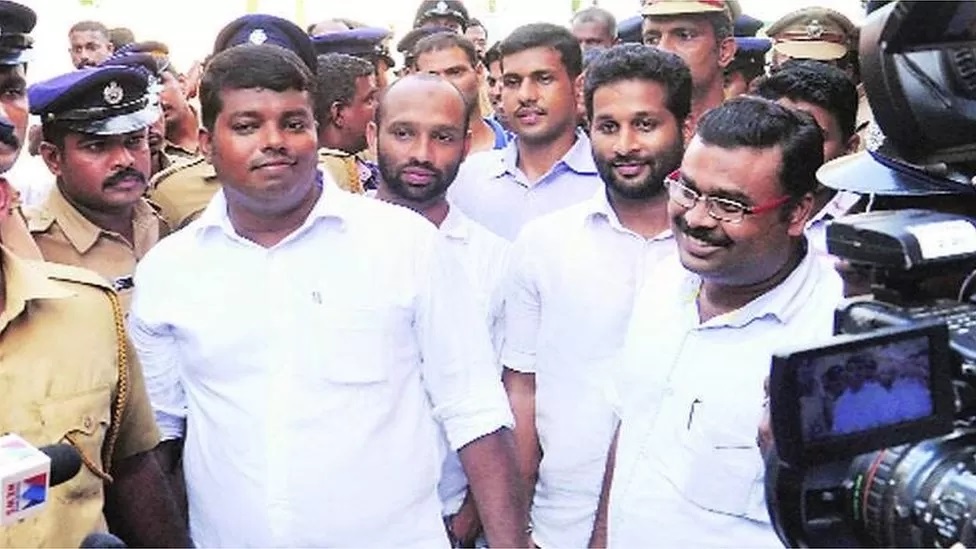
The police quickly picked up 31 men in connection with the attack.
They all belonged to the Popular Front of India (PFI), a controversial Muslim organisation formed in 2006, which was banned last month for five years for alleged links with terror groups, an accusation it denies.
Thirteen men were convicted in connection with the attack, 10 of them jailed for eight years. Federal investigators appealed against what they said was lenient punishment for the convicted – the plea is still pending in the courts.
Another 11 people were arrested later and are now facing trial, where some 400 witnesses are expected to give evidence. As the trial drags on more than a decade after the incident, Prof Joseph is still to receive court-ordered compensation of 800,000 rupees ($9,710; £8,804) to be paid by the convicted men.
Jacob Punnoose, who was the chief of the Kerala police during the incident, told me it was “the most well-organised attack” he had investigated in his career.
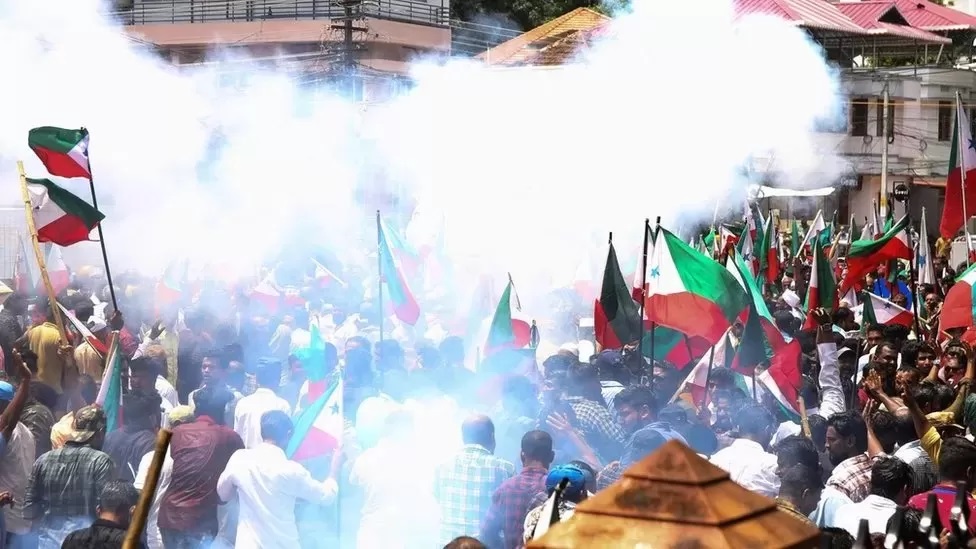
“So much planning went into it. The victim was identified, the place of attack was selected, every precaution was taken. Three vehicles, including two getaway cars, were used,” the retired officer told me.
The men had met at least four times in different places to plot the attack to the barest detail. When their attempts at attacking Prof Joseph at home failed – the teacher was out on two occasions, and shut the door on them once – they bought a minivan and made false number plates. A motorcycle-borne member had tailed the teacher’s vehicle to check out the route he took to the church.
“They were so clever that all the mobile phones and SIM card used in the attack were new. One of the attackers made a small mistake. He tried to test a new SIM card in his new phone by calling a random number he disconnected. That number was picked up by us,” said Mr Punnoose.
“This was a Mafia-style attack. We were lucky to have cracked the case early.”
But the real ordeal was just beginning for Prof Joseph.
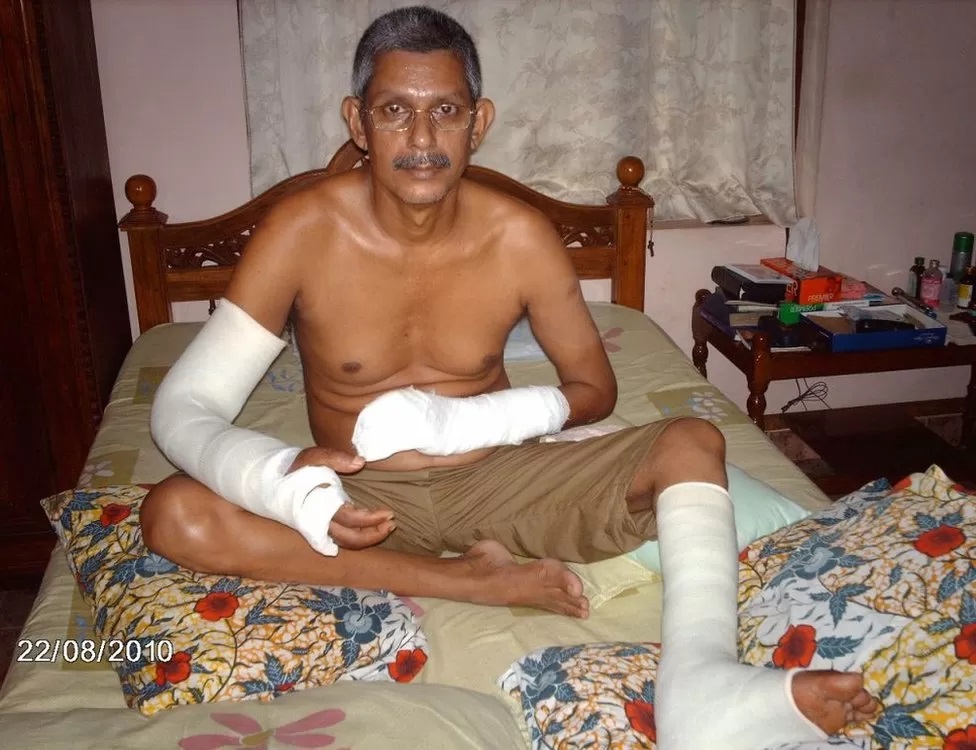
Barely a month after Prof Joseph returned from hospital in August 2010, his college fired him.
There was a firestorm of protest in Kerala: teachers raised money for his treatment; letters of support and sympathy poured in; leading literary and cultural figures condemned the dismissal; and two protesters went on a hunger strike outside his college.
“Only an insensitive body of people could have overlooked these extenuating circumstances and dismiss him from service when he has a wife and two children to support,” a local newspaper wrote in an editorial.
Life rapidly slid downhill thereafter for the professor.
He underwent a series of operations in 2010 and 2011 to fix his injured leg, forearm and fingers. Since he had lost all sensation in his right hand, he had begun to practise writing and eating with his left hand.
The family struggled to keep afloat: jewellery had to be redeemed from pawn shops, education loans for the children had to be paid. Prof Joseph’s wife, Salomi, mulled working in a shop or doing manual work under a government jobs scheme.
The only silver lining came in November 2013 when the court dismissed the charge of blasphemy. The court said the controversy had been created by “some Muslims who had misunderstood” the question.
Prof Joseph, now jobless for nearly four years, said it was a “fleeting moment of joy”.
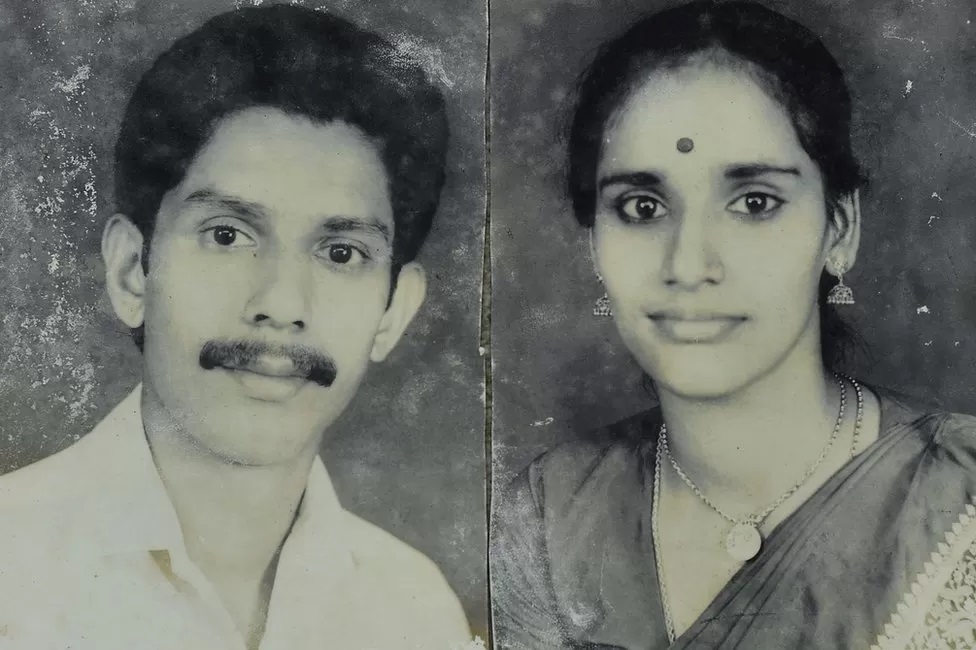
At home, Salomi, 48, slipped into depression. “She said she wanted to die,” said Prof Joseph. The family got rid of pesticides kept at home, hid all knives, locked her medicines, which only Prof Joseph would have access to.
All this didn’t help. One afternoon in March 2014, after having lunch, Salomi took her own life. Her death triggered massive outrage, with the college now being blamed for the family’s tribulations.
Three days after her death, Prof Joseph was finally reinstated by the college. He had three days to go for retirement.
The local Roman Catholic diocese stuck to its guns, however. It said in a pastoral letter read out in congregations that Prof Joseph’s question had “blended blasphemy and religious insult” and “caused distress to students belonging to a particular community”.
The diocese, the letter said, had “showed mercy on him and reinstated him in service” on “humanitarian considerations” and not because there was public pressure.
Prof Joseph’s last-minute reinstatement meant that he was eligible for his salary arrears and retirement benefits. He received support from another diocese which issued a bulletin saying the teacher’s family life had been turned into a “living hell” due to the incident.
“I have accepted the attack in a fighting spirit and kept it behind me,” Professor Joseph said. “But the death of Salomi still haunts me.”
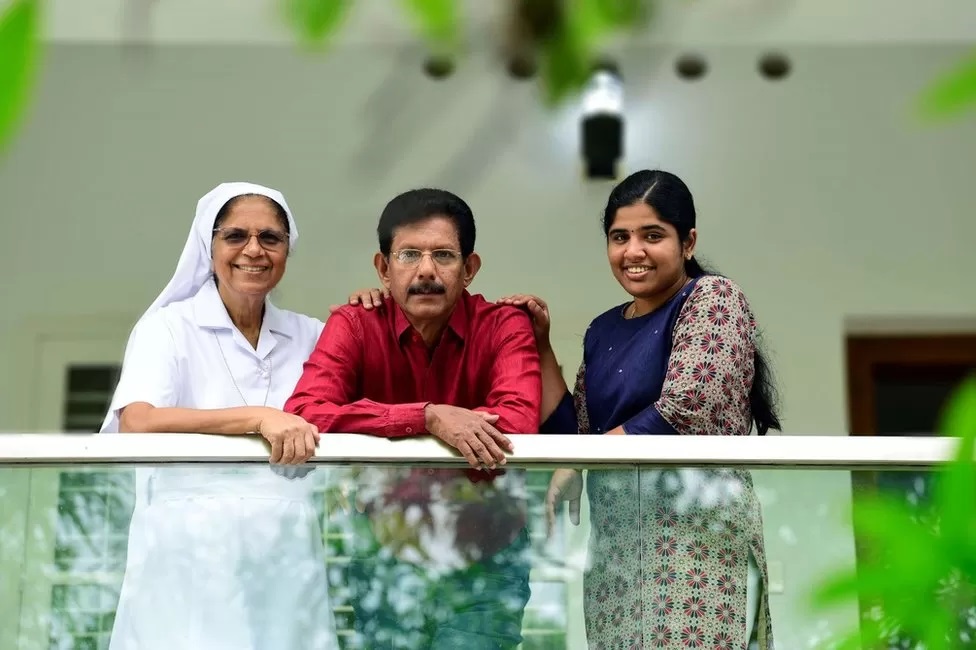
Life has come full circle for the Josephs now.
Prof Joseph says he has been “reborn” as a writer. Writing 700 pages in longhand with his left hand, he completed his memoirs – “A Thousand Cuts”, he called it – which was released last year to critical acclaim and has since sold more than 30,000 copies. He’s also published a “slimmer, mostly satirical” sequel. Now he’s planning a book of short stories.
His house has also expanded to accommodate a growing family – with his retirement money, he’s added a floor and now lives with his 95-year-old mother, 35-year-old son, who works as a financial adviser in a stock broking firm, his engineer daughter-in-law and a three-year-old grandson.
He’s travelled to Ireland to spend time with his 32-year-old daughter who lives and works as a nurse there and is married to an Indian nurse. The couple has an 18-month-old son. His sister, a nun, who was in the car during the attack, often joins them at home.
In his neatly tucked-in shirt, denims and rimless glasses, Prof Joseph doesn’t look like a 64-year-old grandfather, who was maimed and ruined a decade ago. The son of a farmer and a homemaker mother, he’s a wiry and brisk man and exudes a sense of stoic calm.
Prof Joseph told me he’s forgiven his attackers for they were “pawns in a much larger game” and has welcomed the ban on the radical group that carried out the attack on him.
But the slow-moving justice system is wearing him out: “Every time they arrest somebody associated with the case I have to go to the jail to identify him and make the rounds of the courts. I went to the court a year ago to depose and have to remember all the details of the attack.”
I asked Prof Joseph about redemption after the collective nightmare faced by his family. He told me an anecdote in his typically taciturn manner.
He said he was on a sightseeing trip with his family in Kerala some years ago where he met a student with her eight-year-old daughter.
“This is Joseph sir who had an unfortunate accident,” the student told her daughter.
“Is he the same man you cried aloud over when you heard the news of his hand being chopped off?” the girl asked.

